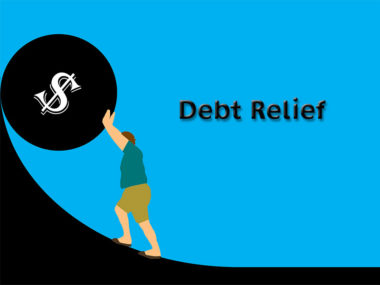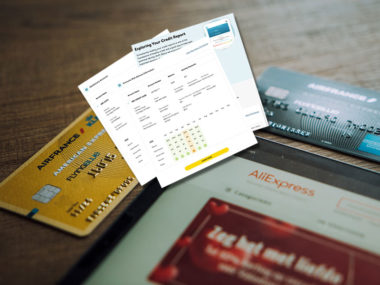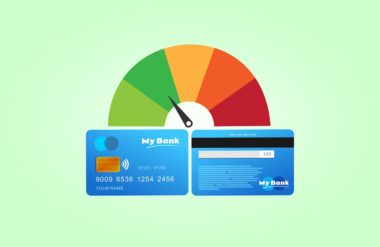For more than half of Americans, credit card debt is a fact of life. According to a survey by CNBC, 55% of Americans carry a balance on their credit cards. And that debt is adding up: the Federal Reserve Bank of New York reports that the overall debt among Americans is higher than ever, eclipsing even the record levels seen before the 2008 financial crisis.
If you are among those who are thousands of dollars in debt, paying back what you owe can feel like an uphill battle. Not only does paying off debt divert funds from other priorities, but the stress could affect everything from your health and relationships to your career choices. However, there are ways that you can take control of your debt and make progress toward a healthier bottom line. Two of those debt relief choices are debt management and debt settlement.
Table of Contents
What Is a Debt Settlement Plan?
Debt settlement involves working with a company that will negotiate with creditors on your behalf to reduce the amount you owe. Typically, this means sending monthly payments to the debt settlement company rather than your creditors, allowing your accounts to become past due. Your money is collected in an account, and once it reaches a specific balance, the debt settlement company will contact your creditors to determine a settlement amount to be paid from those funds.
Depending on how much you owe, the debt settlement process can take several years. In the meantime, because you aren’t paying your creditors, your accounts will rack up interest and fees, and will likely go into collections. However, at the end, all of your debts will be paid.
Advantages of Debt Settlement
- You may pay less than what you owe on your debts.
- Can eliminate your debt in less time.
- May help you avoid bankruptcy and allow you to keep assets.
Disadvantages of Debt Settlement
- Your credit score will take a major hit, as creditors report delinquent accounts and late payments.
- Your overall balances will increase due to interest and fees.
- Not all creditors will accept debt settlement, leaving you on the hook for the full balance.
- Debt settlement companies often charge significant fees, up to 25% of your total balance.
- You may need to pay taxes on forgiven debts.
- Not all debts qualify for settlement, including student loans and back taxes.
What Is a Debt Management Plan?
Under a debt management plan, you pay back the entire amount that you owe to creditors. However, a debt management company negotiates with your creditors to reduce interest rates, eliminate fees, or otherwise lower your monthly payments so you pay less in the long term.
Instead of making monthly payments to your creditors, you pay the debt management company, who makes the payments on your behalf until the balances are paid in full. This usually takes up to five years, during which time you cannot open any new lines of credit.
Advantages of a Debt Management Plan
- Minimal impact on your credit. Although debt management requires closing accounts, which can lower your credit score by reducing the age of your accounts and overall available credit, simply being in a debt management program doesn’t have any measurable effect on your score. In fact, over time, debt management can help you improve your score.
- Your debts are paid in full. You also save money via reduced interest rates and fees.
- Easier management of monthly bills. You only need to make one payment.
- Creditors will not contact you for payment once you’re in the program.
- Prevents you from spending more and adding to your balances.
Disadvantages of a Debt Management Plan
- Primarily designed for credit cards, and cannot be used for student loans, taxes, or medical bills.
- Debt management companies charge monthly fees.
- Requires you to make regular payments. Missing payments could kick you off the plan.
- Closing accounts may affect your credit score.
- If you have extremely high debt, you still may not be able to afford the consolidated monthly payment to get your debt paid off.
Is Debt Management or Debt Settlement Right for You?
The type of debt relief plan that’s right for you depends on your individual situation, including how much you owe, whether you’re already delinquent on your accounts, and how much you can pay toward your debt each month.
For example, if you are behind on payments and your credit score has already taken a hit, a debt settlement plan could be a good option for helping eliminate that debt for less than you owe. Also, if there is no hope that you’ll ever be able to pay the debt otherwise and you are facing bankruptcy, then settling may be preferable, as it will not require you to liquidate assets.
If your debt is primarily from credit cards, and other debt relief options such as consolidation or transferring the balances to a low interest card aren’t feasible, then debt management could be the right choice. You need to have enough income to cover the monthly payment, and a commitment to making that payment on time every month.
Missing even just one payment can cause you to be dropped from the debt management program, putting you right back where you started, and possibly in an even worse position. However, if you need help maintaining the discipline necessary to avoid using your credit cards and developing better spending habits, then a debt management company may be able to help.
Ultimately, whichever option you choose, look for a company that’s committed to helping you get out of debt, not making huge profits via exorbitant fees. Even when you are stressed to the point of desperation, do your homework to find a company that will work for your best interests and help you, not take advantage of your already precarious financial situation.
Choose a company that has been in business for at least 10 years, is licenced and bonded in your state, and has trained counselors to help you. Read reviews and ask for references, and take control of your financial health.
Image Source: https://depositphotos.com/





